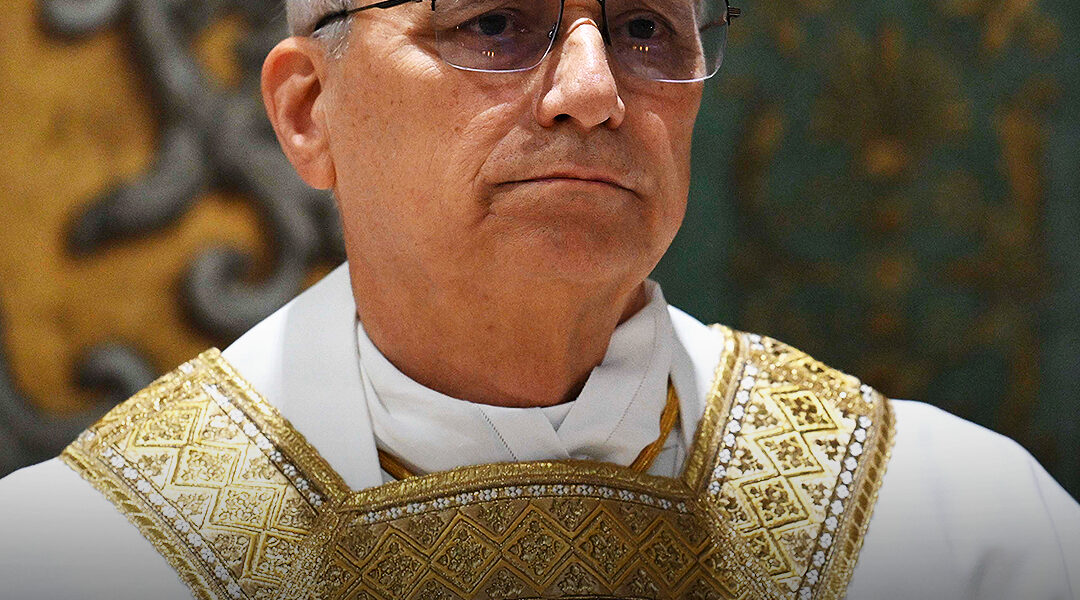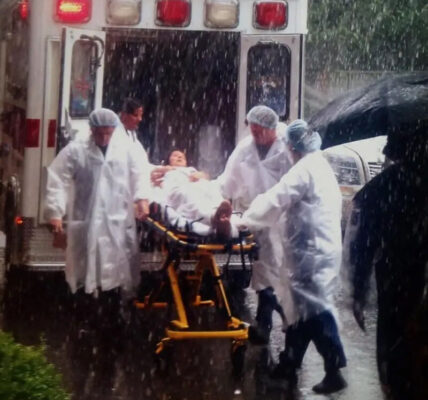How Much Will the Pontiff Be Paid: Pope Leo XIV’s Salary Sparks Heated Debate
The newly elected Bishop of Rome’s predecessor refused to accept a salary during his tenure. This has turned the spotlight on the pontiff’s finances within Vatican City.
Following headlines that raised questions about whether popes receive personal income, netizens quickly weighed in. Some expressed surprise, having assumed the role came with no pay and was purely a spiritual calling. The conversation gained even more traction after the election of the new pontiff.
On May 8, 2025, Robert Francis Cardinal Prevost became the first American elected as the 267th Bishop of Rome, taking the name Pope Leo XIV. Cardinal Protodeacon Dominique Mamberti announced his election with the traditional words “Habemus Papam,” sharing the news with Rome and the world.
Not long after the historic announcement, attention turned to the man behind the title and the life experiences that shaped him. Father Mark Francis, a longtime friend who studied alongside Pope Leo in the 1970s, shared that the pontiff’s Midwestern upbringing had a strong influence on his character and approach to faith.
Now serving as Provincial of the Viatorians in the US, Father Francis described him as thoughtful, steady, and quietly humorous, adding:
“He is not a showboat kind of person.”
The Bishop’s election raised global interest — not only in his background but also in the details of his new role. One question that surfaced was whether popes receive a salary.
While they do not earn pay in the usual way, the Vatican ensures they lack nothing. Everything from meals and lodging to transportation is provided, along with access to other comforts.
Along with curiosity about the Head of the Catholic Church’s financial setup, many have turned their attention to his personal income. As of now, Pope Leo’s exact net worth has not been made public.
Still, during his time as a cardinal, he was said to have received a monthly income ranging from $4,000 to $5,000. While that monthly figure applied to his time as a cardinal, it prompted wider discussion online about how the papacy is financially supported.
One commenter remarked, “Entirely [sic] my ignorance but I thought they did it for the calling not for financial gain. Surely they have little to no outgoings.” Another questioned, “What? He’s not doing purely to spread love? [sic]”
Others emphasized that money is unnecessary for the role. One person stated, “He doesn’t need money. Everything is included in the job,” and another argued, “But you don’t need a salary when every [sic] you want is paid for.” One observation added context to the benefits, “€2,500 when every other living expense is covered is a nice amount of money.”
Another layer to the conversation comes from how the previous pope handled the matter of pay. According to reports, Pope Francis chose not to accept a salary when he became pontiff in 2013, even though popes are typically entitled to one.
While the position is said to come with a monthly income of $32,000, he declined all wages from the Church, setting himself apart from those before him.
However, this decision did not separate him from the privileges that came with the office. Though Pope Francis declined his salary, he still had access to assets tied to the papacy.
At the time of his death in April 2025, his net worth was estimated at around $16 million, which included official benefits such as five vehicles and other resources provided through his position. While he never accepted the pay allotted to him, it remained part of the valuation of his estate.
His financial choices matched the values he upheld during his time in office. Known for leading a humble life, Pope Francis remained true to his Jesuit principles throughout his service.
In fact, the Vatican confirmed in 2001 that he had never accepted church money, even before becoming pope. This contrast between his modest lifestyle and the Church’s resources has often drawn public interest.
Although Pope Francis chose a path of simplicity, the Catholic Church itself holds immense global wealth. With substantial assets around the world, the institution commands significant financial power. Still, his personal choices stood apart — centered not on gaining riches, but on living a life rooted in humility and devotion.
Alongside this, focus shifted to how the papal role is sustained through the Church’s financial system. The Vatican, as the spiritual center of Catholicism, possesses valuable properties and investments worldwide. These resources help guarantee that the pope is well provided for, both financially and in daily life.
In exploring how this support system operates, it helps to look at the unique economy behind the Vatican itself. Recognized as the smallest country in the world, Vatican City maintains its operations through a blend of donations, investments, and commercial activities.
The Holy See, which oversees its governance, collects contributions and directs part of those funds into stocks, bonds, and real estate. Additional income comes from museum ticket sales, along with the sale of coins, stamps, and official publications.
While the Vatican’s financial sources keep its operations running, internal concerns among its workforce reveal another side of its economy.
Pope Francis often stressed the value of fair pay and support for families. However, the workers’ union expressed growing frustration, describing employees as worn down by budget reductions and the absence of meaningful responses to their appeals for acknowledgment.
With about 4,500 workers — roughly 3,100 serving the Holy See and the rest employed in museums and other offices — staff concerns have grown. Among them are 700 lay employees represented by the union.
Though salaries remain modest, many Italian lay workers are drawn by benefits such as tax-free earnings, access to private healthcare, reduced rent, and exclusive shopping options within Vatican grounds.
Concerns about working conditions have grown more urgent amid financial strain within the Vatican. Facing ongoing budget challenges, Pope Francis introduced cost-cutting steps aimed at stabilizing the Vatican’s finances.
He noted that the pension fund required immediate changes to meet future needs and appointed Cardinal Kevin Farrell to oversee the matter. In response, employees voiced worry that their wages could be affected and called for transparency around the fund’s financial state.
This move showcased broader instability, shaped by years of poor management, financial controversies, and revenue losses — particularly during the lengthy shutdown of the Vatican Museums due to the COVID-19 pandemic.
These financial issues placed even greater focus on the Vatican’s pension fund, a long-standing area of unease. In his letter, Pope Francis admitted that reviews revealed a troubling imbalance within the fund — one that would likely worsen without timely action. He explained that the system, as it stood, could not ensure pension payments for future generations.
The Association of Lay Vatican Employees responded with worry, saying that lay staff had already taken the hardest hits from earlier budget cuts and asking Vatican leaders to take their complaints seriously.
Pope Francis reinforced the urgency of pension reform, citing expert reviews that showed a growing imbalance in the fund. He emphasized that the current setup could not secure pensions for future staff and acknowledged that resolving the issue would involve tough choices and cooperation from all sides.
After acknowledging the weight of the challenge, the Bishop of Rome outlined the steps he believed were necessary to move forward. He expressed appreciation for earlier efforts but stressed the importance of starting a new chapter to protect the community’s long-term welfare.
Calling for cooperation among the Roman Curia and other Vatican bodies, he emphasized that changes to the pension system could no longer be delayed. Ensuring fairness for both current and future generations, he said, must remain at the heart of the solution.
As discussions around internal reform continue, questions about the Vatican’s broader financial position have also come into focus. Within its borders, the Vatican operates under a tax-exempt status, though this privilege does not always apply to individuals or organizations connected to it in other nations.
Given the varying tax rules beyond Vatican walls, personal finances connected to the papacy may require closer review. As a result, Pope Leo may have to assess what his earnings are truly worth.
This ties into a wider pattern, as churches around the world often receive similar exemptions. Despite its limited size, the Vatican oversees a financial system that remains intricate and largely hidden from public view.
While recent efforts by successive popes have helped improve transparency and public trust, the challenge of stabilizing its finances — and narrowing budget gaps — remains an ongoing issue.
Pope Leo XIV enters his role amid renewed scrutiny of the Vatican’s finances and structure. While the papacy does not follow traditional salary models, the Church provides for the Pope’s needs through its vast global assets.
Past and current reforms sheds light on ongoing efforts to manage transparency, worker concerns, and long-term stability. As financial questions persist, the new pontiff’s leadership will be closely watched both for his spiritual guidance and administrative decisions.




